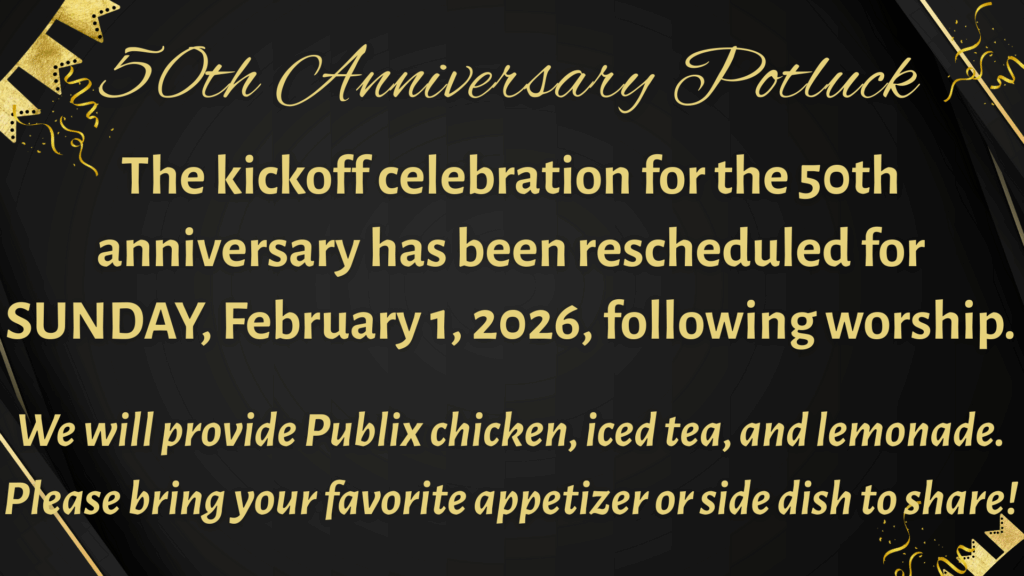Today is Baptism of the Lord Sunday! Fresh from the story of Christ’s birth, we leap ahead in the timeline some thirty-something years to the beginning of his ministry in Galilee. The story of Jesus’ baptism is shared in our Synoptic Gospels – Matthew, Mark, and Luke. All three use this event to proclaim in no uncertain terms that Jesus is the Messiah, the one for whom God’s people have been waiting. The big points are the same. Each describes John the Baptist as a wild man from the wilderness who baptizes those who repent. The authors make a point John the Baptist is not the Messiah, perhaps to quell rumors that he was. In the verses we skipped in Luke’s gospel, this is further punctuated with the note that John the Baptist was arrested by King Herod; later we will read how he is beheaded. John the Baptist steps aside, and the true Messiah, Jesus Christ, emerges from the crowd to take center stage. He has come to be baptized. His immersion is then followed by words from heaven in one form or the other. Here is where each writer also includes some unique details that give their version a slight spin, usually related to their perspective and point of emphasis for their audience. But all are again a proclamation that he is God’s beloved child. The Baptism of the Lord is Jesus’ inaugural moment into ministry. Christ’s identity is revealed. It is from this point where it all begins.
The verses leading up to the moment in the river Jordan help us make sense of what it means. In Luke’s account, our text opens with the reminder that people are filled with expectation, longing for a Messiah. John the Baptist’s words help speak to the one who is to come. He uses the imagery of the winnowing fork to describe it. I don’t know about you, but this was not a familiar analogy or metaphor to me. It likely was for the original audience in the 1st century though. As Linda McKinnish Bridges explains:
This common agricultural illustration was frequently used in the biblical world (Ps. 1:4; Prov. 20:26, Isa. 41:15f; Jer. 15:7). The harvested grain is taken to the threshing floor and cleaned. Toss a portion of the harvested grain in the aid with a winnowing fan, a fork-like shovel, then let the wind do the work. The wind takes control of the process, separating the wheat from the chaff, a mixture of heavy husks and straw. The wheat falls away from the chaff. The chaff is collected and burned, and the wheat remains safely stored in the barn[i].
The long-awaited-for Messiah was supposed to sort things out, separate what was good from bad in the world in acts of judgment. John’s description of this cues us in to what people were looking for, and will serve as another juxtaposition as Jesus’ ministry begins and seems to be at-odds with expectations. But the illustration also points to more than just Jesus.
The illustration of wheat and chaff . . . reveals that the most active agent is the wind. The agent that does the separating of good and evil, the righteous from the unrighteous, is the Spirit. . . . [in other words], Jesus holds the shovel, and the Spirit does the work[ii].
John is clear that baptism is about more than just water; it is also about the Holy Spirit, illustrated here as wind, fire, and dove. All of these images swirl around the text like ripples on the water, calling us to look below the surface of the water, or maybe behind it.
On the outskirts of the southeast corner of Chestnut Ridge County Park in New York there is an area called Shale Creek Preserve, which features a waterfall cascading over a picturesque grotto. The rock formations are such that there are several fissures in the shale through which methane gas escapes. The gas is highly flammable, and once lit, creates a brilliant flicker known as the “eternal flame,” reaching up to 8 inches in height, visible even from a distance where it flickers for extended periods of time even as water cascades in such close proximity. It’s a curiosity for sure, and a reminder that even in nature, sometimes things that don’t seem to go together can be held in imaginative tension that leads to wonder as fire and water seem to coexist at the same time[iii].
This is similar to the images Luke gives us for baptism. Did you catch it? John the Baptist notes that while he baptizes with water; the one who comes after him (hint: that’s the Messiah, who will enter the scene just moments later), will baptize with the Holy Spirit and, yes, FIRE. It’s a bit curious, in a story all about water, to have this little nugget, nestled into the description of the Holy Spirit, and literally surrounded by references to being submerged in water. Have you ever tried to light a campfire after a rainstorm? While it’s not impossible, it certainly is difficult to get fire out of wet wood. And yet, here it is, like the eternal flame, burning amidst the currents, catching our eyes and causing us to wonder.
Paying attention to the Holy Spirit in the midst of the story of Jesus’ baptism reminds us that this sacrament is about more than just water on our heads. In fact, it’s even about more than being a part of God’s covenant and welcomed into Christ’s church. Baptism is about throwing ourselves into the wind of the Holy Spirit. This even works its way into our liturgy. After baptism, our Book of Common Worship instructs the minister to say something like this:
child of the covenant, you have been sealed by the Holy Spirt in baptism, and marked as Christ’s own forever.
As wonderful as it is to talk about the water, this morning we are reminded to not skip over the spirit, but to look for flames among the currents.
It is said that the books of Luke and Acts, both believed to be by the same author, are “books of the Holy Spirit.” They focus on the movement of this mysterious part of the Trinity in ways the other gospels don’t. In Luke’s gospel, the Spirit is already highlighted well by the time we reach this story in chapter 3. It has swept over John the Baptist’s birth, been named as the way in which Mary came to bear the Messiah in her womb, caused Elizabeth to jump for joy at Mary’s arrival, inspired Simeon in visiting the temple. As one writer notes, Luke is all about the Holy Spirit. He:
draws on language about the Holy Spirit in a variety of contexts, and he is more concerned with asserting the presence and activity of the Spirit than with charting the Spirit’s moves[iv].
Baptism reminds us of the Spirit on the move, and should “light a fire” under us in faith. It affirms that God has a purpose for us. This Baptism of the Lord Sunday challenges us to return to the waters to remember our identity as God’s own, hearing those promises from Isaiah as words for us today and celebrate that we are a part of God’s covenant, connected through Jesus Christ. We joyfully embrace this identity as God’s own, not so we can just pat ourselves on the back, but so that the Holy Spirit can descend like a dove. As Ernest Hess notes:
When heaven opens up, something real descends and enters earth. This is the inbreaking of the new age. The Spirit is loose in the world in and through Jesus, who will baptize his followers, not with water alone, but with the Holy Spirit and fire[v].
Baptism is a disrupter in our lives that sets us on a new course, with Christ and the Holy Spirit working hand in hand.
And so this morning, we return to the waters, not to be baptized again (or for the first time), but to remember this as a touchstone for our faith that launches us into the future, and to pray that the heavens will break open for us and declare the start of something new. We fling ourselves into the wind, and trust the Spirit will sort us out and set us on a path for ministry. We surround ourselves with the refreshing, rushing water, and hope to catch a glimpse of God’s fire burning in its midst. May it be so. Amen.
~sermon by Rev. Elizabeth Lovell Milford, Heritage Presbyterian Church, January 13, 2019
___________________________________________________________________________
[i] Linda McKinnish Bridges, “Exegetical Perspective: Luke 3:15-17, 21-22,” Feasting on the Word, Year C Volume 1, David L. Bartlett and Barbara Brown Taylor, Editors, (Louisville, KY: Westminster John Knox Press, 2009).
[ii] Linda McKinnish Bridges, “Exegetical Perspective: Luke 3:15-17, 21-22,” Feasting on the Word, Year C Volume 1, David L. Bartlett and Barbara Brown Taylor, Editors, (Louisville, KY: Westminster John Knox Press, 2009).
[iii] https://curiosity.com/topics/how-fire-burns-beneath-a-waterfall-at-eternal-flame-falls-curiosity/?utm_source=facebook&utm_medium=social&utm_campaign=20190109waterfallfire&fbclid=IwAR36s57qx3dqyigGO_adv99ixIf6un5yW-SkdYxAGSTf0xbHCnlQHa9mc3Y and http://www.wnytrails.com/?p=243 , both accessed 1/12/19.
[iv] Texts for Preaching, Year C
[v] Ernest Hess, “Homiletical Perspective: Luke 3:15-17, 21-22,” Feasting on the Word, Year C Volume 1, David L. Bartlett and Barbara Brown Taylor, Editors, (Louisville, KY: Westminster John Knox Press, 2009).


